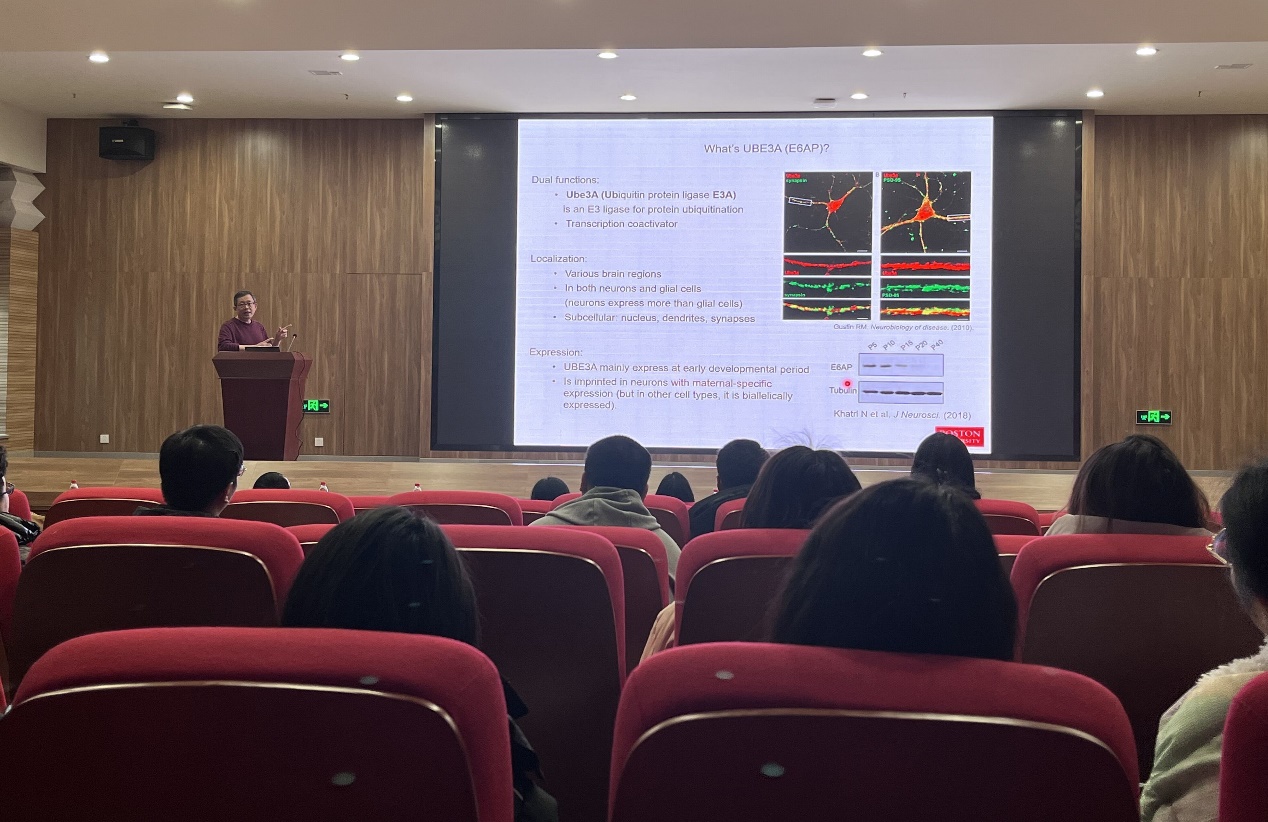On February 25th, Hengye Man, a tenured professor in the Department of Biology and Pharmacology at Boston University, paid a visit to the School of Basic Medicine, Tongji Medical College of Huazhong University of Science and Technology. Prof. Man will engage in academic exchanges with Prof. Lingqiang Zhu from BMS and other faculty with similar research interests during his one-month stay in Wuhan.

On the morning of February 28th, Professor Man delivered an academic lecture entitled "Sexual Dimorphism and Synaptic Deficits in UBE3A-dependent Autism Spectrum Disorder" to faculty and students at Tongji Medical College. He provided an overview of his research group's overall research direction and latest findings. One of the research projects highlighted the gender dimorphism in behaviors related to Autism Spectrum Disorder (ASD) in Ube3A-overexpressing (2×Tg) mice. Male mice exhibited significant impairments in social preference, social behavior, memory, and pain sensitivity, while females showed abnormal olfactory function. Professor Man's lab revealed that Ube3A overexpression led to ubiquitination and decreased expression of androgen receptors (AR) in the brains of male and female Ube3A 2×Tg mice. Restoring AR levels in the male mice normalized ASD-related ARG gene expression, social behavior preference, memory, and repetitive behaviors, indicating that AR downregulation mediated the occurrence of male-specific autism symptoms. Additionally, Professor Man briefly introduced a novel mechanism of AMPA receptor GluA1 downregulation in Ube3A-ASD, offering new insights for future ASD treatments.

An introduction to the speaker
Professor Hengye Man currently holds positions as a tenured professor in the Departments of Biology and Pharmacology at Boston University and a professor at the Neuroscience Center. His research focuses on AMPA receptor trafficking turnover, steady-state synaptic plasticity, genes related to abnormal synaptic function in autism spectrum disorders, neuronal development and growth, as well as exploring cellular and molecular processes in neurodevelopmental disorders and neurodegenerative diseases. He serves as a reviewer for journals such as Neuron, Nature Neuroscience, Nature Communication, J Neuroscience, Aging Cell, Cell Reports, JCI, PNAS, among others, and has participated in the peer review process for funding agencies such as the National Institutes of Health (NIH), Medical Research Council (UK), German Research Foundation, Research Grants Council (Hong Kong), Canada Research Chairs Program, Netherlands Organization for Health Research and Development, Israel Science Foundation, and the Alzheimer's Association. Over the years, Professor Man’s research has garnered international attention in the field of neuroscience, with over 100 publications in renowned international journals like Science, Nature, Cell, Neuron, J. Neuroscience, PNAS, accumulating over 9,880 citations.